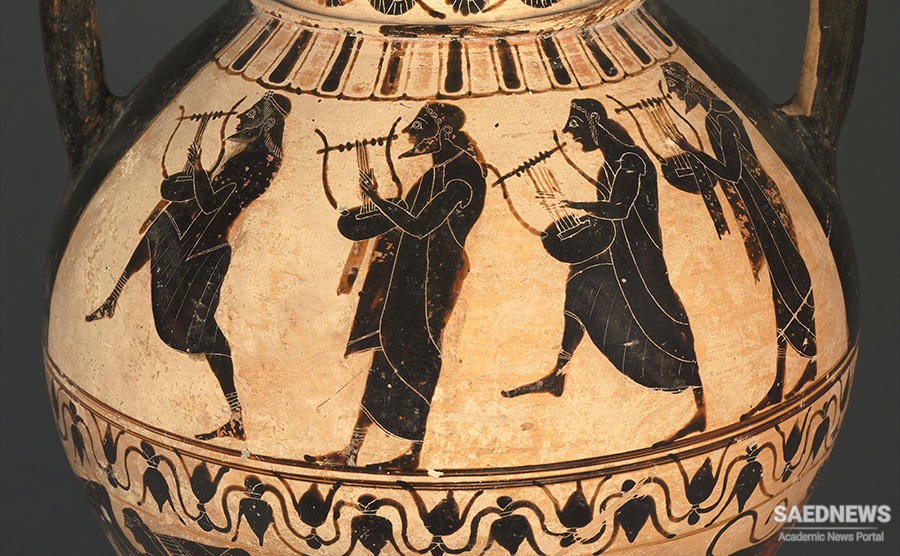THE music of the ancients, according to Euclid, Alypius, and Martianus Capella, was divided into seven constituent parts : these were Sounds, Intervals , Systems, Genera, Modes, Mutations, and Melop&ia, or the composition of melody. To these divisions, which comprehended only what was denominated Harmonics, or the Science of Music, strictly so called, were added five other requisites, no less essential for a musician to know, than the preceding seven: and these were, Rhythm, or the regulation of cadences in all kinds of movement; Metre, or the measure of verses ; Organic, or the instrumental art ; Hypocritic, or gesture ; and Poetic, or the composition of verses. And still to these divisions, Aristides Quintilianus, and some other musical writers, add Odicuwi, or the Art of Singing; which, indeed, seems of more importance to Music, than either the Organic or Hypocritic art. In order to communicate to readers all the information we are able, upon so dark and difficult a subject, we shall consider the music of the ancient Greeks under such heads only as absolutely concern Music, according to our acceptation of the word ; for it is plain that several of its ancient divisions more immediately belonged to Poetry. Indeed these two arts were at first so intimately connected, and so dependant on each other, that rules for poetry were, in general, rules for music; and the properties and effects of both were so much confounded together, that it is extremely difficult to disentangle them.


 Musical Relevance of Folk Music
Musical Relevance of Folk Music














































